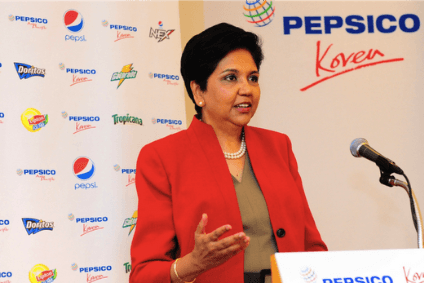
Unilever and PepsiCo are among 100 companies to support recommendations issued by a G20-convened task force on the voluntary disclosure of the financial impact of climate-related risks and opportunities.
In late-2015, the Financial Stability Board (FSB), an international body that monitors and makes recommendations on the global financial system on behalf of the G20, set up a task force to look at climate-related financial disclosures.

Discover B2B Marketing That Performs
Combine business intelligence and editorial excellence to reach engaged professionals across 36 leading media platforms.
In December last year, the task force, chaired by Michael Bloomberg and including representatives from industry, put out for public consultation a series of draft recommendations on climate-related disclosures. The task force had four vice chairs, including Unilever CFO Graeme Pitkethly.
Last week, the task force issued its final report and a set of voluntary recommendations that it said would “help companies disclose climate-related risks and opportunities efficiently and effectively”. It claimed “a growing number of investors are demanding better information” in the area.
Bloomberg said: “Climate change presents global markets with risks and opportunities that cannot be ignored, which is why a framework around climate-related disclosures is so important.”
The recommendations are structured around four areas the task force said “represent core elements of how companies operate: governance, strategy, risk management, and metrics and targets”.

US Tariffs are shifting - will you react or anticipate?
Don’t let policy changes catch you off guard. Stay proactive with real-time data and expert analysis.
By GlobalDataUnilever’s Pitketkly said: “It’s fundamental for every good business to manage and communicate risks and opportunities. We are already obliged to disclose material risk. Climate change is no different. It’s a risk that is already affecting companies today – both through the impacts of steadily rising global temperatures and through the policies that governments around the world adopt in response.”
He added: “As part of the task force, we have put together a standardised framework for companies to disclose climate-related risks and opportunities, focusing on making them as practical as possible to adopt. Why? Because markets need information to operate efficiently. We have to be transparent to help investors make better decisions for the long term. And beyond the markets, we know that transparency is increasingly important to our consumers too.”
Singapore-based agri-food group Olam International and Netherlands-based ingredients supplier DSM were also among the companies to support the recommendations.





